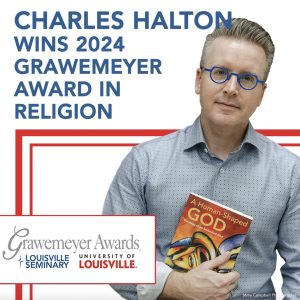 I am incredibly honored to receive the 2024 Grawemeyer Award in Religion. It is a particularly significant honor for me because the previous recipients of the Grawemeyer have inspired and shaped my theological life through their imaginative and boundary pushing work.
I am incredibly honored to receive the 2024 Grawemeyer Award in Religion. It is a particularly significant honor for me because the previous recipients of the Grawemeyer have inspired and shaped my theological life through their imaginative and boundary pushing work.
When I was a high school student growing up in Austin, Texas I dreamed of becoming a scholar of religion. At many points I doubted whether I had the ability to do it. I remember looking at the first winner of the Grawemeyer, E.P. Sanders—a fellow Texan—who shifted the study of the New Testament, and thinking that maybe I too could join The Great Conversation.
The Grawemeyer winners that came after him are scholars whose books have set the standard of writing I have aspired to. Their ideas have changed my religious imaginary and formed the ways I move through the world. I never expected to win the Grawemeyer, but I am so appreciative of this recognition for A Human-Shaped God.
There are so many people I’d like to thank who made this work possible. In particular, my wife, Lori, who supported and encouraged me and this book in all ways. Daniel Braden, my editor at WJK, who believed in this book from the beginning and helped bring it to the world. And, all the folks at Louisville Seminary, the University of Louisville, and the Grawemeyer Award who read this book as part of this process.